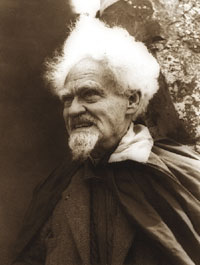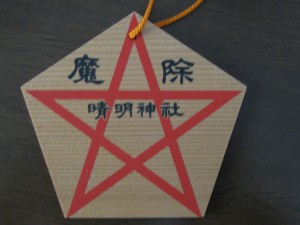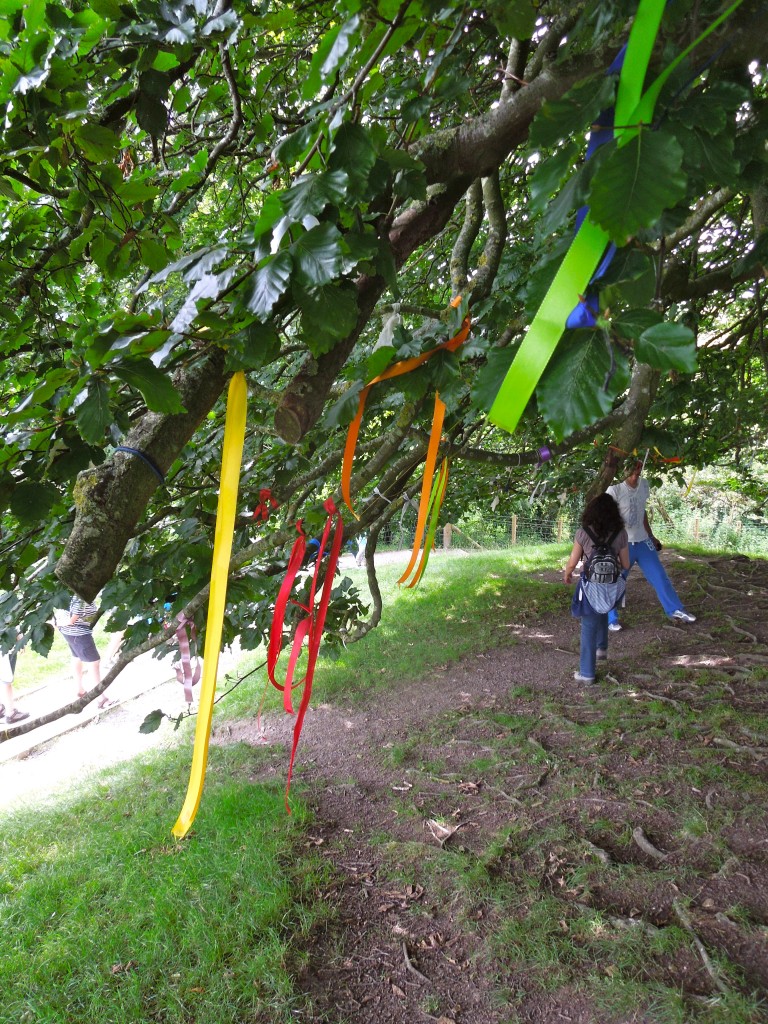
In many ways Japanese who choose to follow Witchcraft are the mirror opposite of Westerners who choose to practise Shinto. Both look to distant countries with alien customs for spiritual inspiration. Both might be considered oddities for not following the rich religious traditions of their own cultures.
Ever since the Meiji Restoration, Japanese have taken to exploring Westernisation in virtually every single aspect. It is no surprise then that with the extraordinary rise of paganism in the West, Wicca in particular, there should not be those drawn to learning more. The interest was given an enormous boost by Harry Potter, as evidenced by the number of Japanese visitors to associated film sites as well as to the historical Museum of Witchcraft and Magic.
The passage below is excerpted from an article by a Japanese academic entitled ‘The Western Witchcraft in contemporary Japan’ (click here). The paper, given at the American Academy of Religion Annual Meeting 2018, centres around interviews with 16 self-described Japanese pagans in the Kansai area. With a myriad kami and an indigenous tradition of sympathetic magic in Shinto rites, Japanese have their own ‘pagan’ past to explore. This makes the crosscultural borrowings all the more intriguing, particularly as to the kind of deity from which the practitioners draw inspiration.
**************

_____________________
Quote from the paper begins….
Discussion
What can we say from these interviews?
1) Not many witches chose Japanese deities, but rather Western deities. Many do not have a specific image, but understand deity as a concept, which is similar to Western Pagans. I suppose Japanese witches are influenced by books which are translated from English or written by witches who studied in the West.
2) Although there are many deities in Japan, witches do not mention their names and do not choose deities for different purposes…. However, they do not say something like, “there are many names of goddesses, but they are all one Goddess,” like Western Pagans. For them, deities are separated figures, as in Japanese tradition.
3) Their idea of deity is influenced by their family religious situation. We hardly study religion at school, even Japanese mythology, since WWII. For many of us, the idea of deity is different from God, but there is no clearly shared concept of deity.
Conclusion
Japanese witchcraft does not take a role of alternative faith or social movement, such as feminism or nationalism. Witches are involved in art, healing, therapy, divination or the occult, so the number of people who are interested in witchcraft is limited. If they go to the US or the UK, they are usually surprised that witchcraft attracts a wider range of people there.
I suppose it is not easy for Japanese to understand the concepts of deity and faith of Western witchcraft, which was developed in Judeo-Christian countries. A lady who stopped calling herself witch said, “I have a feeling that there are deities in many places, not like monotheism, but I’m not enthusiastic about one deity, or two or three. (…) So I don’t have faith. I’ve been to shrines and temples since I was a child, it’s like a custom. I’m not conscious of deity. I cannot forget this kind of idea.”
Like her, many Japanese people do not think “deity” consciously but just accept something there. Therefore if they are in situation where they can think about a deity consciously, Japanese witches realize deities, using their experience. Or if not, they accept the Western idea more straightforwardly.
Japanese witches might be similar to the ancient Celts, Greeks or Scandinavians who probably understood each deity separately. To be honest, deities are personified and have become popular game and anime characters in Japan. The idea of one deity with many names, which is probably coming from Hindu concept of one deity with several avatars, might be a way of understanding polytheism in a monotheistic world.
*******************
Further links…
For an interview with a Japanese witch, please see here. For an interview with someone who combines Shinto and pagan practice, please see here. For a series of 8 posts on the pagan past, start with this one. For similarities between pagan Britain and Shinto, please see here, and for the common elements of Wicca practice with Shinto rites, click here. For a series of 12 postings about Pagan connections with Shinto, start with this one.

(photo John Dougill)
